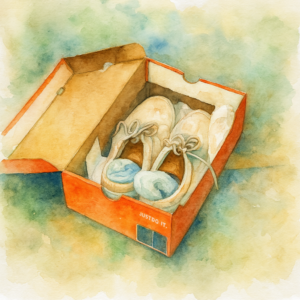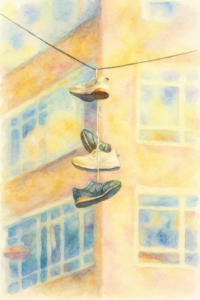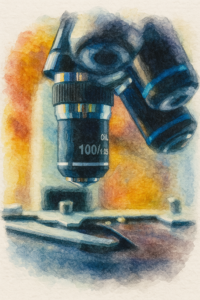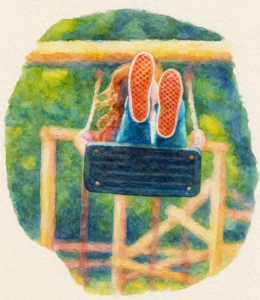The audio sample and transcription is from RFI’s Revue de Presse Hebdomaires Français 13 July 2025 Episode. We do not own this content, nor do we pretend to.
The above audio sample and transcription is from RFI’s Revue de Presse Hebdomaires Français 8 June 2025 Episode. We do not own this content, nor do we pretend to. The above is for educational purposes only. Find the full text and audio here or on Google Podcasts or Apple Podcasts.
having had a brilliant run
Please share your thoughts below. What’s opening up? Was this challenging? What was a new word for you? Comment below.
The snippet in English
Find a translation of this snippet here, how much of this did you hear?
Tout autre chose pour terminer, avec la finale du Mondial des clubs : il s’agit de football. Finale qui se jouera ce soir aux États-Unis, entre le Paris Saint-Germain et Chelsea. Le PSG, ayant signé un brillant parcours, part favori, notamment aux yeux de la presse française, et particulièrement aux yeux du Parisien Dimanche, qui titre déjà : « Un nouveau jour de gloire ». « Le monde leur appartient », ajoute le journal, qui concède tout de même : « Enfin, pas tout à fait, pas encore, pas au palmarès… mais dans les faits, oui ! » Mais si le PSG gagne, pas question pour les supporters de célébrer la victoire sur les Champs-Élysées, comme ils en ont l’habitude. Les Champs seront fermés, en prévision du défilé du 14 juillet, demain. Une célébration d’un tout autre genre.
On a completely different note, we have the Club World Cup final: it’s all about soccer. The final will be played tonight in the United States between Paris Saint-Germain and Chelsea. PSG, having had a brilliant run, is the favorite, especially in the eyes of the French press, and particularly in the eyes of Le Parisien Dimanche, which has already headlined: “A new day of glory.” “The world belongs to them,” adds the newspaper, which nevertheless concedes: “Well, not quite, not yet, not in terms of trophies… but in reality, yes!” But if PSG wins, there will be no question of the fans celebrating the victory on the Champs-Élysées, as they usually do. The Champs will be closed in anticipation of tomorrow’s July 14 parade. A celebration of a completely different kind.
Translated with Deepl.
What does “Tout autre chose” mean?
tout autre chose means “something completely different” or “a whole other thing.”
Passons à tout autre chose.
(Let’s move on to something completely different.)
Used to shift topics or contrast strongly with what came before. Neutral in tone, common in both speech and writing. Emphasizes a break or change.
What does “il s’agit de [qqch]” mean?
il s’agit de [qqch] means “it’s about [something]” or “it concerns [something].”
Il s’agit d’un problème technique.
(It’s a technical issue.)
Formal and often used in writing, explanations, or news. More precise and impersonal than c’est. Avoided in casual conversation, where c’est is preferred. Often used to introduce the subject of a discussion or clarify what’s at stake.
What does “ayant signé un brillant parcours” mean?
ayant signé un brillant parcours means “having achieved a brilliant journey” or “having delivered an impressive track record.”
Ayant signé un brillant parcours en championnat, l’équipe vise désormais l’Europe.
(Having delivered an impressive season in the league, the team now aims for Europe.)
Usage notes: Formal, often used in journalism or professional praise. Signer un parcours is a figurative way to say someone completed or accomplished something noteworthy, like a career, project, or competition.
Cultural note: Common in sports, academic, or political contexts in France. It gives a polished, elegant tone to describing someone’s success or trajectory.
What does “tout de même” mean?
tout de même means “all the same,” “still,” or “even so.”
Il était fatigué, mais il est venu tout de même.
(He was tired, but he came anyway.)
Usage notes: Neutral and versatile. Can express concession, surprise, or mild insistence. Similar to quand même, though tout de même is slightly more formal or old-fashioned.
Cultural note: Common in both speech and writing. In spoken French, quand même has largely replaced tout de même, but both remain widely understood and often interchangeable in meaning.
What does “pas tout à fait” mean?
pas tout à fait means “not quite” or “not completely.”
Ce n’est pas tout à fait fini.
(It’s not quite finished.)
Usage notes: Neutral and polite. Often used to soften disagreement or indicate something is nearly—but not fully—true or done.
Cultural note: Common in both formal and informal French. It adds nuance and tact, making it useful in conversation when correcting or clarifying gently.
What does “palmarès” mean?
palmarès means “list of achievements” or “track record.”
Son palmarès inclut plusieurs prix littéraires.
(His list of achievements includes several literary awards.)
Il a un beau palmarès en tennis
(He has an impressive record in tennis)
Usage notes: Masculine noun. Common in sports, arts, or professional contexts to highlight awards, wins, or major successes.
palmarès = track record / list of wins
trophées = physical awards
Cultural note: In French media and biographies, palmarès often appears when summarizing someone’s career highlights — especially athletes, artists, or public figures. It carries a tone of prestige and accomplishment.
What does “comme ils en ont l’habitude” mean?
comme ils en ont l’habitude means “as they usually do” or “as they’re used to doing.”
Ils ont gagné sans difficulté, comme ils en ont l’habitude.
(They won easily, as they usually do.)
Usage notes: Slightly formal. The phrase emphasizes something done regularly or in a typical pattern, with en referring back to a habit or behavior.
Cultural note: Common in writing and formal speech, especially in news, commentary, or storytelling. Often used to underline consistency, tradition, or routine behavior — sometimes with a hint of admiration or irony.
What does “en prévision [de]” mean?
en prévision de means “in anticipation of” or “in preparation for.”
Ils ont acheté des provisions en prévision de la tempête.
(They bought supplies in anticipation of the storm.)
Usage notes: Formal or neutral. Used in planning contexts — events, weather, expenses, risk.
Cultural note: Often found in official or news language. In everyday speech, people might say au cas où or pour se préparer à instead.
What does “d’un tout autre genre” mean?
d’un tout autre genre means “of a completely different kind” or “of an entirely different sort.”
Ce film est d’un tout autre genre que le précédent.
(This film is of a completely different kind from the previous one.)
Usage notes: Neutral and standard. Used to contrast types, styles, or categories — often with emphasis on how different they are.
Cultural note: Common in reviews, analysis, or comparisons — whether about art, people, experiences, or ideas. Adds a refined or thoughtful tone to highlighting contrast.
Why Listening to RFI and the News Helps You Learn French in Real Life
At French IRL, we believe anyone at any level can start to immerse in real world French, French: In Real Life. Real life conversation and scenarios bring the language to life and connects it with the world around us. There’s no better place to connect to the world than with the news.
This is why our RFI and News category is a powerful tool for anyone learning French: it blends current events, authentic speech, and everyday vocabulary into real, living French. We try to focus on positive news (or at least not dwell on all the dark things in the world). The opinions expressed in these news posts do not necessarily represent the opinions of the editors of this project.
Listening to French news—especially from sources like RFI (Radio France Internationale)—exposes you to native pronunciation, cultural context, and the way people actually speak. You’ll hear idiomatic phrases, formal French, regional accents, and natural sentence structures, all in a format that’s more engaging than a textbook.
Explore other ways to grow your skills on our site:
- Try a daily French quiz for bite-sized practice
- Get full access to our tools with the All Access Pass
- Learn how to make the most of our content in our guide, How I Use French IRL
Whether you’re a beginner looking for context or an advanced learner keeping up with French current affairs, RFI and news-based learning brings vocabulary and comprehension together—just like it’s used in real life.
Improving your French Listening Comprehension with Podcasts
On this site, fast spoken French is finally accessible to all levels. The tool break podcasts into short clips each set to transcription fill-in-the-blank practice. My favorite practice in class is always dictées. While they can seem overwhelming at first, the confidence boost and skills payoff for doing the work pays off. They’re perfect for anyone at any level, from advanced students to those just starting.
We use podcasts and our practice exercises to make it possible for anyone, anywhere to immerse in French with fun and ease. Join us and enjoy French, one short clip at a time. Let’s learn together!
Make the most of the site:
- Daily Podcast Listening: Start your day with a French podcast from our collection. Choose episodes that align with your interests to keep it engaging.
- Active Listening Practice: As you listen, try to pick out key phrases and vocabulary. Use our daily quizzes to test your understanding and reinforce learning.
- Repeat and Shadow: Listen to the same podcast segment multiple times. Try to mimic the pronunciation and intonation to improve your spoken French.
- Note-taking: Jot down new words or phrases you encounter. Review these notes regularly to enhance vocabulary retention.
- Reflect and Respond: After each episode, summarize the main points in French, either in writing or aloud. This helps in consolidating your learning and improving your expressive skills.
- Read More:
- True Beginner or A1 Learners: discover tips learning with podcasts at an introductory level.
- Discover all the podcast clips on FrenchIRL organized by level.
- Top Tips: Here’s how I make the most of my own site.
I created the French In Real Life project because I wanted to understand more than just my teacher and youtubers who cater to learners. I wanted to understand the French I hear in France. I hope you can benefit as much as I have. Become a supporting member for access to all clips.
What did you love about this?
Comment below with your feedback about learning with the news! Tells us what you think. Send a note or leave a comment below. We appreciate the feedback. Also, we’re always looking for partners to build this site and grow the content available.
The audio sample and transcription is from RFI’s Revue de Presse Hebdomaires Français 13 July 2025 Episode. We do not own this content, nor do we pretend to. The above audio sample and transcription is from RFI’s Revue de Presse Hebdomaires Français 8 June 2025 Episode. We do not own this content, nor do we…
Start quiz, type what you hear, then join the conversation.
Did you find this one challenging or easy? Did you hear something diffferent? What surprised you? What levels did you complete? Comment below and share what’s opening up for you with this quiz.








